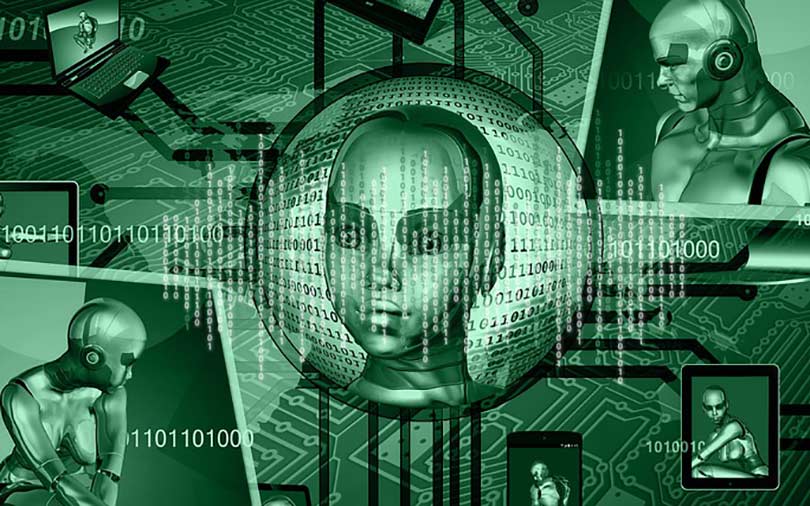
From investment to wellness: Expect these 5 artificial intelligence trends in 2018


Artificial intelligence (AI), machine learning, deep learning – all terms casually tossed about over recent years to paint a vision of a future only seen in Hollywood movies. But 2018, experts say, is the future -- the year when AI will start to dominate devices both at home and at work.
Here is a list of top AI trends you may get to see in 2018:
1) AI will finally come of age

Simply put, there will be less talk and more action as all energies sunk in investment and research and development of newer applications of AI start producing results in 2018.
"Results are starting to appear beyond computers learning to beat humans at board games and TV game shows," said Bernard Marr, bestselling author and industry expert. "I expect 2018 to provide a continuous stream of small but sure steps forward, as machine learning and neural network technology take on more routine tasks."
According to technology research firm Gartner, there will be a huge influx of AI in personal devices. The firm has predicted that by 2022, personal devices will know more about an individual's emotional state than his or her own family.

"Emotion AI systems and affective computing are allowing everyday objects to detect, analyse, process and respond to people's emotional states and moods to provide better context and a more personalised experience," said Roberta Cozza, research director at Gartner. "To remain relevant, technology vendors must integrate AI into every aspect of their devices, or face marginalisation."
2) AI will attract more investment
The AI sector, according to market research firm Tractica, is expected to see a rise in investment from $640 million in 2016 to $37 billion in 2025.
Image recognition, algorithmic securities trading and healthcare patient data management “have huge scale potential” for AI; so do areas such as business services, consumer products, industry (industrial robotics), advertising, finance, media and defence, Aditya Kaul, market intelligence firm Tractica’s research director, told Big Data news portal Datanami.

According to a report by consulting firm McKinsey & Company, big tech giants such as Baidu and Google have spent between $20 billion to $30 billion on AI in 2016 -- 90% on research and development and deployment, and 10% on AI acquisitions. It also showed that AI investment has turned into a race for patents as well. US-based companies absorbed 66% of all AI investments in 2016. Growing fast, China came second at 17%.
"With self-driving cars and ships, as well as life-saving medical advances on the horizon, it seems likely that the speed of technological change is only going to increase as the decade draws to a close. For many chief executives and chief technology officers, acting on the potential for change is an increasingly urgent priority," Marr wrote in an opinion piece.
3) AI will have a baptism of fire but enterprises will operationalise it

According to Marr, a lot of AI projects will have a baptism of fire as the tech is still evolving. He believes that machine learning will take a hit as there could be several hurdles like disharmony between business and data teams in organisations. AI and machine learning could also run into external barriers such as legal, political or economic developments.
Interestingly, Tomer Shiran, chief executive of analytics firm Dremio, said AI will be used in the selection of datasets for training purposes.
"Everywhere you turn, companies are adding AI to their products to make them smarter, more efficient, and even autonomous," Shiran was quoted as saying by a top official of tech media company IDG. "In 2017, we heard competing arguments for whether AI would create jobs or eliminate them, with some even proposing the end of the human race. What has started to emerge as a key part of the conversation is how training datasets shape the behaviour of these models."

Having said that, experts believe AI will be operationalised by enterprises in a big way in 2018. Nima Negahban, chief technology officer of database firm Kinetica, said that AI will go beyond small-scale experiments as companies have already spent enough time on it. She said that now these companies will look to seek revenue or potential from its usage.
4) Voice interactions will lead the way for AI
Another trend will see companies asking customers to turn to voice exchanges with AI programmes. We can all see a lot of this happening on smartphones and tablets: Apple's Siri, Microsoft Cortana and Google Assistant. All these companies are moving into homes and offices, with Amazon's Alexa leading the effort.

Marr quoted a report claiming that next year 20% of firms will look to add voice-enabled interfaces to their dashboards and systems. He said it is a natural progression because it is easier to communicate via voice rather than a regular input/output channel. This is where natural language processing will come into play as computers or systems are trained to understand human language.
5) Robots will inch closer to health and wellness segment
We have already seen IBM Watson, an AI platform for business, detecting complex diseases and suggesting treatments. As AI engines gets smarter, the primary healthcare segment will see a lot of input in the form of analysis and facial recognition.
"We are also likely to see more robots appearing in people’s homes with the ability to help them cope with disability and illness. Care and companionship robots are expected to become popular and could begin to become an everyday reality in 2018," Marr wrote.
Also, robots will infiltrate people's lives in different forms such as cleaning-robots, robot suitcases, and robots as butlers.
